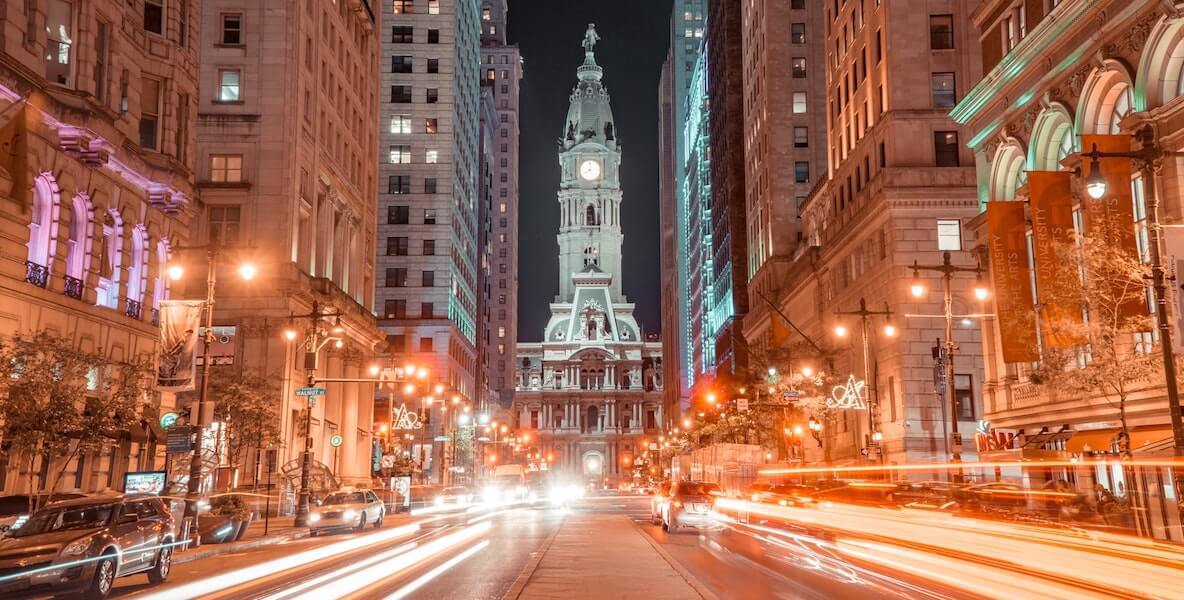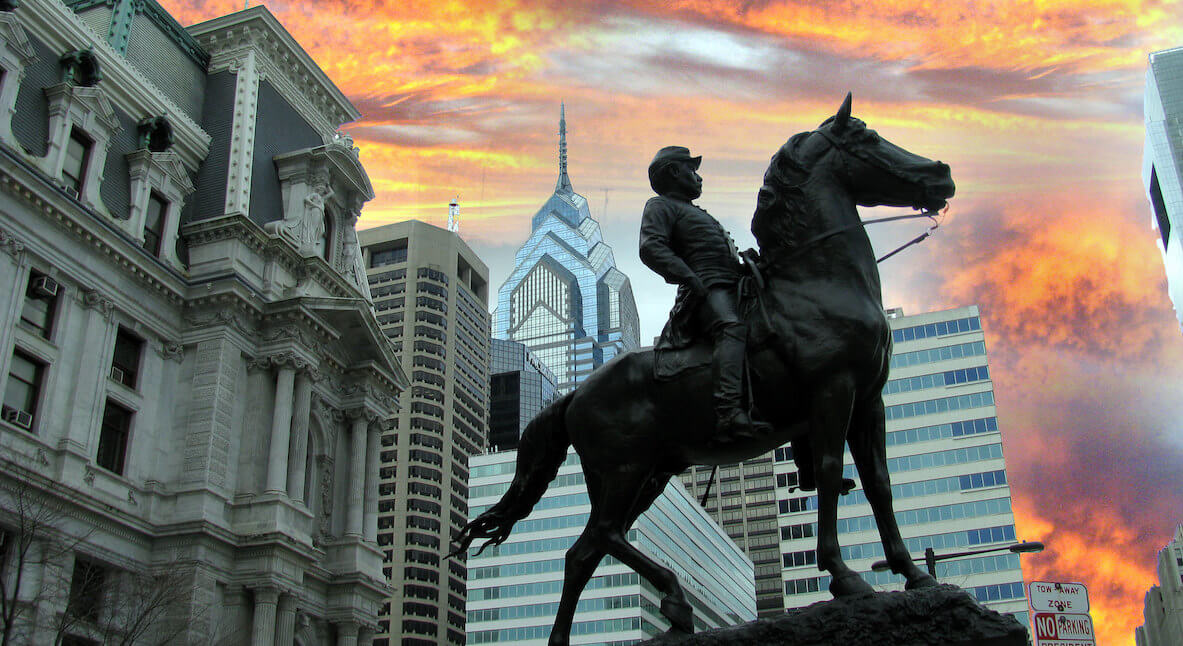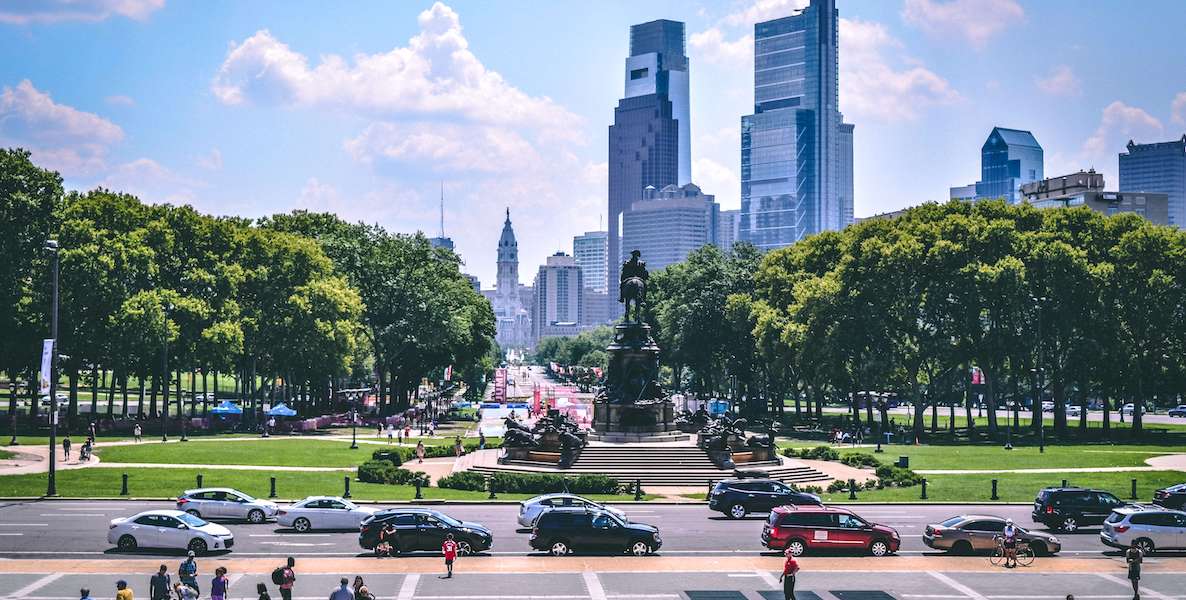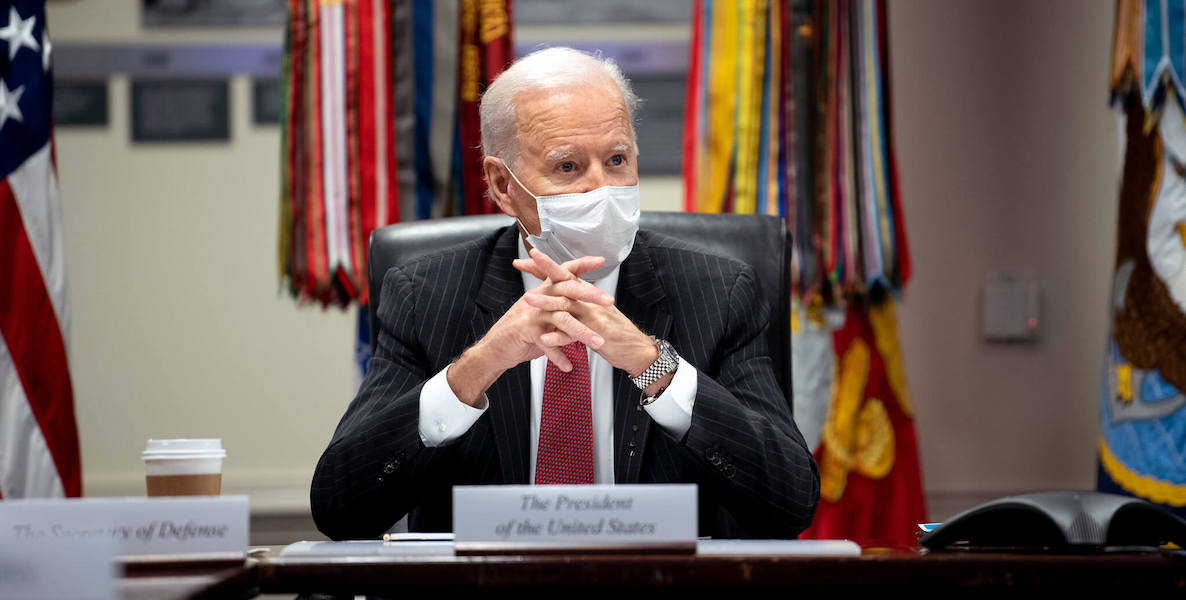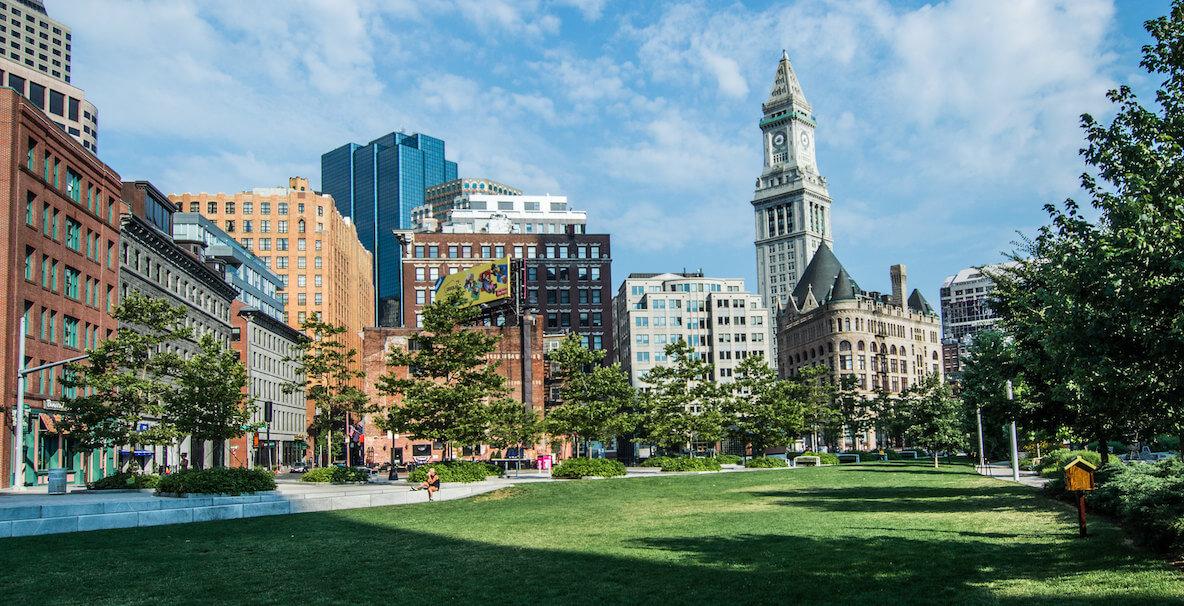No two cities loom as large in America’s historical iconography as Philadelphia and Boston. As colonial seats of commerce and culture, then as crucibles of revolution and cradles of new world democracy, these two towns on our nation’s eastern seaboard offer a litany of American firsts: long before the eponymous Massacre and Tea Party, from Boston emerged America’s oldest institution of higher learning (Harvard University) and its first public school (Boys Latin), not to mention famous Philadelphian Benjamin Franklin.
Three hundred miles down I-95, Philadelphia boasts its own long list of firsts: first hospital, first medical school, first patent, and first daily newspaper, just to name a few. (Both Boston and Philadelphia claim the first public library; someone should look that up somewhere.)
MORE ON SEIZING OPPORTUNITY IN PHILADELPHIA
Today, though Boston and Philly have been eclipsed in population and as political and economic hubs, they remain renowned centers of groundbreaking life sciences research and innovation. Both cities are home to dozens of top flight universities, world-renowned hospitals and some of the most visionary, creative scientists the world has ever known. These attributes are reflected in the fact that over the past decade, Boston has been the top recipient of National Institutes of Health grants, while Philadelphia follows close behind as the fourth biggest recipient of NIH funding.
But despite these facts, only Boston has blossomed as a commercial powerhouse of biotech and life sciences. For years, blue chip Big Pharma companies and startups alike have found a welcome reception and fertile ground for investment in southeastern Massachusetts; indeed, some 32 percent of all recent biotech IPOs came from Boston or Cambridge-based firms and biotech firms are responsible for over $12 billion in Massachusetts wages and employ over 75,000 people. Philadelphia barely registers on this metric.
The question is then, what is Boston doing that Philadelphia isn’t? Between two cities bursting with scientific resources, why has only one been able to convert those raw materials into the leading economic drivers of its region?
Annus horribilis 2020 provides some insight; in the early days of the pandemic, even before the federal government intervened, Massachusetts Governor Charlie Baker announced the state would invest over $700 million in boosting PPE innovation and manufacturing. This kind of quick, ahead-of-the-curve action was possible in 2020, because the Massachusetts legislature, in conjunction with the state’s hospitals, research universities and private biotech companies had laid the critical groundwork years before.
The question is then, what is Boston doing that Philadelphia isn’t? Between two cities bursting with scientific resources, why has only one been able to convert those raw materials into the leading economic drivers of its region?
Back in 2008, then-Governor Deval Patrick launched a 10-year initiative that pumped $1 billion into biotech R&D through the Massachusetts Life Sciences Center Capital Funding Program.
In 2018, Gov. Baker signed a Life Sciences Bond Bill into law, extending the term of the Capital Funding Program and infusing it with $463 million in new capital authorizations.
This kind of long-term, non-partisan commitment to nurturing a homegrown life sciences industry reinforced a strong capital infrastructure to assure private investors that the Bay State was a safe and profitable place to plant their money, and it also allowed Massachusetts, and the Boston region in particular, to be laced up and ready to explode out of the starting blocks when the race against Covid-19 began.
And indeed, the Bay State is fertile ground to cultivate biotech business. In fact, within a mile radius, there are over 120 biotech companies in Boston’s Kendall Square neighborhood alone and over 1,000 biotech firms between Boston and Cambridge. During the pandemic in 2020, 21 biotech companies based in Massachusetts completed an IPO, raising $3.9 billion, including Beam Therapeutics, Relay Therapeutics and Foghorn Therapeutics.
Boston is also the headquarters of several leading Big Pharma firms, including, most notably, ThermoFisher and Moderna. ThermoFisher made the bulk of all PCR test kits in the U.S. since the onslaught of Covid, and Moderna was one of the first and most prominent vaccine developers over the past year. Boston-based companies like these received billions of dollars in federal grant money during the pandemic, creating thousands of local jobs.
Meanwhile, our region began the race against the coronavirus without shoes on our feet. And what makes that sad reality so maddening is not that we lack the talent or institutional essential resources to compete in such a contest; on the contrary, Philly is overflowing with pre-eminent minds, well-equipped labs and hungry entrepreneurs determined to make this place a future center of life sciences innovation. Painfully ironic is the fact that Penn Medicine scientists Dr. Drew Weissman and Katalin Karikó’s seminal work on mRNA served as the basis for Moderna’s blockbuster vaccine.
Also at Penn Medicine, Dr. James Wilson leads the Orphan Disease Center, a revolutionary initiative focused on developing new therapies for rare diseases, and a host of other boldface names like Carl June, Bruce Levine, Katherine Choi and Robert Vonderheide are re-inventing everything from cancer immunotherapy research to health care delivery services. At the same time, ambitious young life sciences companies in the region, like Tmunity, Sparks and Ocugen are all striving to commercialize the game-changing therapies emerging in our own backyard.
Again, the problem in Philadelphia is not one of raw resources and know-how, but a problem of will and vision. For decades now, local, regional and statewide policymakers have failed to support meaningful public sector investment in an industry that will not only shape the quality of human life in the 21st century, but serve as a principal economic engine in an era when cities and regions, not nations, consolidate themselves as global centers of power.
It’s true that in Philadelphia, many of the underlying issues are systemic; ours is the poorest big city in the country, with over 25 percent of our neighbors subsisting below the federal poverty line. Inequality is rampant, our public school system is under-resourced and poorly led, and environmental inequities make daily life particularly more difficult and dangerous for poor Philadelphians of color. To be sure, these failures are social, moral crises that demand a solution for their own sake. But it’s also the case that such quality of life concerns scare off would-be outside investors, and discourage our best and brightest—those with the most mobility—from committing to Philly for the long-term.
As a city of firsts in American history, it’s a sobering wake-up call to have been lapped by our better-prepared neighbor to the north in the race against a common enemy like Covid-19.
We also remain under the thumb of an archaic, sclerotic, and venal political culture, more obsessed with the protection of little fiefdoms and perpetuation of petty grievances than with looking ahead toward a dynamic, sustainable and prosperous future. Until that nihilistic culture is finally replaced with something positive, Philadelphia will never shed its millstone.
Nevertheless, there are reasons for cautious optimism as we begin to emerge from the chaotic exhausting doldrums of the pandemic year. New reports suggest a surging market for life sciences commercial real estate in Philadelphia, driven by drug discovery companies shifting toward manufacturing and proprietary clinical trials. Given the real estate sector’s status as a legacy heavyweight in local political influence, we can be hopeful that a dirt and girders approach might catalyze life science industry investment in a way that test tubes and centrifuges have not.
And on the policy side, motivated actors are starting to take matters into their own hands by bringing together stakeholders from across disciplines to leverage comparative advantages in the interest of healthcare investment. That’s why I founded the Ark Institute, which has convened a cohort of individuals and organizations from the life sciences, supply chain and philanthropic sectors to develop effective new approaches to anticipating and combating the next major public health crisis.
As a city of firsts in American history, it’s a sobering wake-up call to have been lapped by our better-prepared neighbor to the north in the race against a common enemy like Covid-19. But to be clear, this is a biopsy, not an autopsy. Both Boston and Philadelphia are great American cities, steeped in history. But today, Boston has re-imagined and reinvented itself as a region of the future, taking a concerted, top-down approach to engender an environment, a workforce and a capital base to thrive by looking ahead.
I still believe that Philly has what it takes to do the same, but there’s a lesson to be learned from Boston’s experience: we can’t keep living in the past.
Ajay Raju is a Citizen co-founder and CEO of Raju LLP.
Header image: Rose Kennedy Greenway, Boston | Photo by Pul Geffen / Flickr


